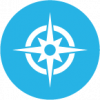Scaling Online Degrees with Equity-Focused Growth: An interactive exploration of recruiting and open-access design

Brief Abstract
We will outline how we’ve effectively scaled an online degree program, while designing and partnering for affordability and access. An interactive presentation will help guide this process as we highlight innovation in open-access technology and inclusive design as well as recruiting strategies to maximize resources for both institutions and students.
Presenters

Extended Abstract
Financial resources are limited for both institutions and students. How do we recruit and scale courses and degree programs online that ensure innovation and open access? Is it possible to build a process to grow in an inclusive and equitable manner with student affordability in mind? Can we adapt courses or even whole degree programs that improve student services and support in a manner that is sustainable for growth? With so many steps, such as partnerships, recruiting, universal design, innovative online technologies, and processes and policies to support learners, how can programs be adapted to employ these initiatives? How does one even begin to outline this process?
The idea of tackling all of these elements can be a bit daunting, but progress in just one or two areas can make a significant impact on students. Identifying where your key gaps lie and having a plan of attack for those specific items can help you begin the process. It does not have to be an all-or-nothing approach to open education, access, and equity. We can take small steps immediately that can build over time to create the process and culture of a sustainable course or program that opens these doors wider and wider.
Do you want to bring your online program to the next level? We have successfully navigated this task and have some key points to share in framing out this strategy – regardless of where your program or courses are in the process. The model is flexible enough for users to focus on one key area to tackle, so that progress is obtainable and not overwhelming. For example, are you interested in only focusing on access and recruitment? No problem, the process is non-linear and can be entered and exited at any point!
By documenting the processes that our program has successfully implemented in adapting every effort, from recruiting, universal design, inclusive pedagogy, affordability, and student retention, we are able to share the best practices learned from this journey.
Participants can interactively explore key focus areas in our iPhone themed presentation template. Select which topic(s) to investigate more in depth and choose your own adventure! Visit our discovery session and click around this virtual platform to increase your knowledge of open-access education that scales. You are only clicks away from having new innovative strategies in “byte-size” pieces that you can implement right away! So, come join us!
Level of Participation
The discovery session is structured as an interactive presentation where users click on a virtual iPhone template with “Apps” that take them to the topic of focus in one click. For example, if the user wants to learn more about adding a Massive Open Online Course (MOOC) for recruiting, they simply click on the “MOOC App” to explore the steps and best practices. Participants can come back to the “Home screen” and then choose another “App”, such as “Open Access” to find processes and resources for adapting current classes. This format allows users to engage and explore what gaps they have in their programs, at their own pace. Participants can explore this asynchronous presentation on their own terms, as the material is structured to provide information, processes and resources to obtain each goal of the selected “App”, allowing for a participant-tailored approach that is singular in theme. Participants can explore each topic further for an all-encompassing process. The “byte-size” chunking of focus areas, or- “Apps”, puts the participant in control to allow for a customized approach to this process.
Sessions Goals:
Individuals attending this discovery session will be able to discuss tangible strategies and action items for adapting current online courses or programs for scalability, open-access, and affordability for students and the higher education provider. Participants will be able to articulate at least one process, or series of steps, that will improve their course or program in a self-selected focus area. Lastly, participants will be able to describe the 30,000-foot view of the overarching process of recruiting, designing, and partnering for equity, access, and scalability.


